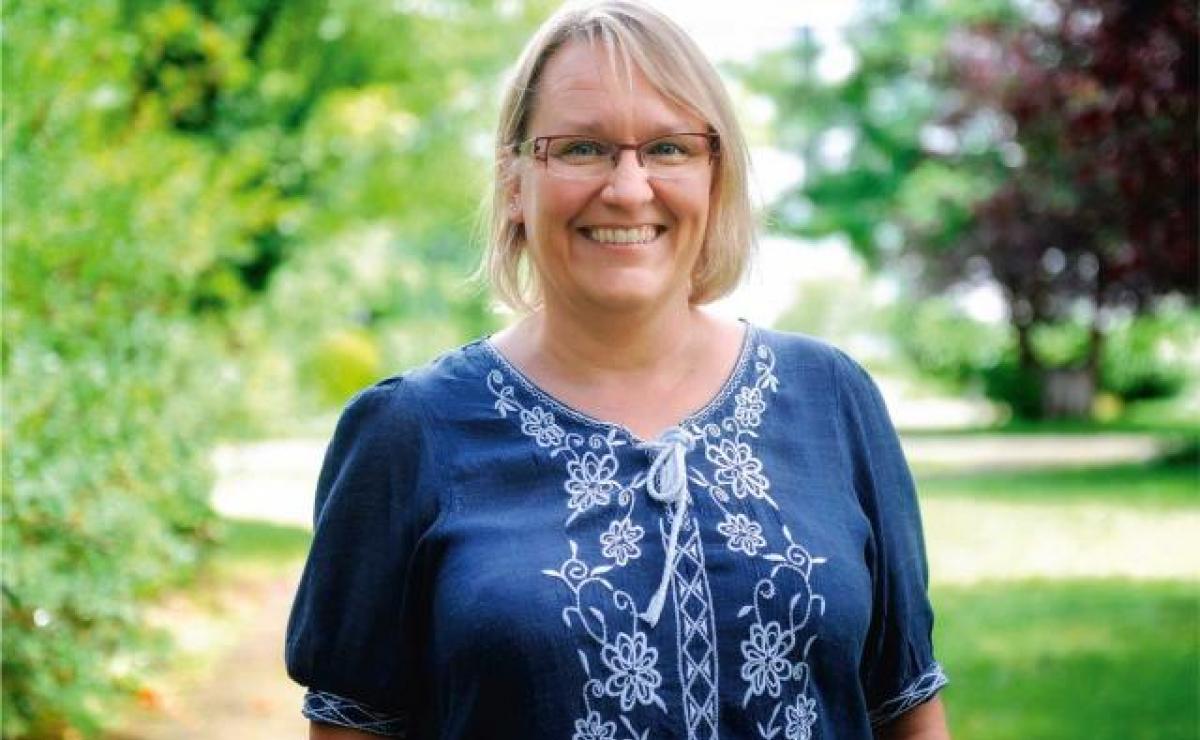Organizations need to promote women’s confidence

World Humanitarian Day: Interview with World Service director Maria Immonen
#WomenHumanitarians
(LWI) - World Humanitarian Day casts a spotlight on those who work in humanitarian and development organizations, often in dangerous and challenging environments, to support victims of conflict or natural disaster. In 2019, the focus lies on women humanitarians. Female staff face specific difficulties, but they also bring exceptional talents to serve people in need says LWF World Service director Maria Immonen. In an interview with the Lutheran World Information (LWI), she calls for organizations to support and back their staff in more traditional environments.
Is work as a humanitarian different for women than for men, and why?
LWF World Service currently employs close to 8000 staff members all around the world and we are proud of each one of them. They all work with populations of concern in demanding circumstances and under many pressures, with needs always being greater than our capacity to respond to everyone.
For women, working in the humanitarian field, many challenges are the same as they are for men - working far from home and mostly without family accompanying them, dealing with stressful and often dangerous operational environments, working with impossible deadlines.
But it is also true that some elements of working in the field bring extra challenges for women. They are often at a higher risk of sexual violence, for instance, or generally being dismissed or harassed by people around them who may not be comfortable with women in positions of authority. In LWF, equal treatment of all staff is a given, so within the organisation, the employee’s gender does not determine salary levels or other benefits.
Are there work areas where it is an advantage to work with women specifically?
In general, mixed teams of both women and men are always ideal. Just as personalities can at best complement each other, so having men and women working together brings about a broader understanding and more nuanced response to situations in our work. Sometimes, having women-only teams can also be beneficial, especially when we are dealing with sexual or gender based violence. Rape victims may find it easier to speak with another woman and gain support from other victims as they share their experiences.
In our protection work with refugees, sexual and gender-based violence is a particular focus area where women, when they can come together as a group, also feel empowered and often emboldened to raise difficult, culturally sensitive issues in more diverse groups.
It is important to remember, however, that sexual and maternal health issues particular to girls and women need also to be understood by boys and men in communities as the wellbeing of women has an enormous impact on the overall wellbeing of society, and cannot be tackled by women alone.
What are the specific challenges women face in the field?
In some contexts gaining the respect, trust and confidence of the authorities or community elders as a female professional can be demanding. In this, the support of the organisation in promoting the confidence of female colleagues and exposing them to roles previously mainly held by men is very important.
Specific challenges may also relate to personal safety and security, for instance related to accommodation in remote areas, risks of sexual violence and harassment. Luckily these issues are increasingly talked about and both women and men have become more aware of the situation and can help each other to create safe working conditions for all staff.
How many women does LWF have working in the field, and what is being done to accommodate their specific needs?
LWF as a whole strives for a gender balanced workforce and has made enormous strides in this area over the past years. We are very proud that in 2018, 40 percent of our global workforce were women, with increased numbers also in management positions throughout the organisation. 50 percent of our representatives are female.
The main areas in which we specifically address issues related to gender with regard to duty of care are related to safety and security of our staff, and having adequate measures in place to accommodate for maternity leave and family-friendly HR policies, so that more women are able to find a balance between work and private life.
Protection of the humanitarian space has been an issue in the past years. Where do we stand this year, as we mark the 70th anniversary of the Geneva Conventions and the 10th World Humanitarian Day?
The situation has not improved, quite the opposite. In many conflict areas we see drastic violations of humanitarian law, the targeting of humanitarian workers, disrespect for civilians caught in the middle of active warfare. The need to uphold the Geneva Conventions and International Humanitarian Law has never been more evident. Humanitarian workers must not be stopped from carrying out their life-saving work, and even less should they become targets.
National staff members are often even more at risk than our international colleagues as they are always at the frontlines and exposed to the most dangerous of situations. The vast majority, more than 90 percent, of LWF’s staff are national staff, working in their own countries and regions. LWF stands firm in protecting their right to work in dignity, without fear and in the service of those most in need.
